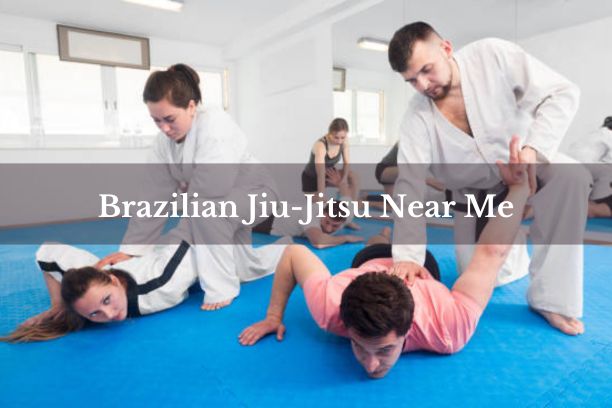Introduction
Brazilian Jiu-Jitsu (BJJ) is a highly effective martial art that emphasizes ground fighting, submissions, and leverage over brute strength. Whether you are looking for self-defense, fitness, or competitive training, finding the best Brazilian Jiu-Jitsu near me can be a game-changer. This guide explores everything you need to know about BJJ, from its history to tips on choosing the right academy.
The History and Evolution of Brazilian Jiu-Jitsu
Origins of Jiu-Jitsu
Brazilian Jiu-Jitsu traces its roots to Japanese Jiu-Jitsu and Judo, introduced to Brazil in the early 20th century. The Gracie family played a significant role in adapting and popularizing the art, making it the global phenomenon it is today.
Growth of BJJ Worldwide
From local academies in Brazil to international competition circuits like the IBJJF and ADCC, Brazilian Jiu-Jitsu has grown immensely. It is now a staple in mixed martial arts (MMA) and self-defense programs worldwide.
Benefits of Training in Brazilian Jiu-Jitsu
Physical Fitness and Conditioning
BJJ provides a full-body workout that improves cardiovascular endurance, strength, flexibility, and mobility. It is an excellent way to stay in shape while learning practical self-defense skills.
Self-Defense and Personal Safety
One of the biggest advantages of Brazilian Jiu-Jitsu is its real-world self-defense applications. By utilizing leverage and technique, even smaller practitioners can neutralize larger opponents.
Mental Toughness and Discipline
Training in BJJ fosters patience, resilience, and problem-solving skills. The journey from white belt to black belt is challenging, requiring perseverance and dedication.
Finding the Best Brazilian Jiu-Jitsu Near Me
Researching Local Academies
Start by searching for Brazilian Jiu-Jitsu academies in your area. Look for:
- Certified instructors with reputable lineage
- Positive student reviews and testimonials
- A clean and well-equipped training facility
Understanding Class Structures
A good BJJ gym offers structured classes for beginners, intermediate, and advanced practitioners. Consider academies that provide:
- Fundamentals classes for beginners
- Gi and No-Gi training options
- Open mat sessions for additional practice
Evaluating the Instructor’s Credentials
The quality of instruction matters. Ensure your instructor holds legitimate rank under a recognized BJJ lineage. Black belts with competition experience can offer valuable insights and technical instruction.
What to Expect in Your First Brazilian Jiu-Jitsu Class
Learning the Basics
Your first class will likely cover fundamental techniques such as:
- Basic guard positions
- Escape techniques
- Simple submissions (armbars, chokes, joint locks)
Drilling and Sparring
Most classes include positional drilling and live sparring (rolling). While intimidating at first, sparring helps reinforce techniques in a controlled environment.
Gym Etiquette and Respect
Respect and discipline are core principles of Brazilian Jiu-Jitsu. Follow academy rules, bow when entering the mat, and show respect to instructors and teammates.
Choosing the Right Brazilian Jiu-Jitsu Academy
Pricing and Membership Plans
Compare pricing structures between different academies. Some gyms offer monthly memberships, while others have drop-in rates for casual training.
Atmosphere and Community
A positive training environment is crucial. Look for an academy that fosters a welcoming and inclusive atmosphere for students of all backgrounds and skill levels.
Trial Classes and Guest Visits
Many academies offer free trial classes. Take advantage of these to experience the instruction style, class structure, and gym culture before committing.
Competition and Advancement in Brazilian Jiu-Jitsu
Belt System and Promotion Criteria
BJJ follows a belt ranking system from white to black. Progression is based on:
- Technical proficiency
- Class attendance and participation
- Competition performance (optional but beneficial)
Competing in Brazilian Jiu-Jitsu
For those interested in competing, local, national, and international tournaments provide opportunities to test skills against others. Popular competitions include:
- IBJJF World Championships
- Abu Dhabi Combat Club (ADCC)
- Local and regional BJJ tournaments
Conclusion
Finding the best Brazilian Jiu-Jitsu near me involves thorough research, trial classes, and choosing an academy that aligns with your goals. Whether you aim to get in shape, learn self-defense, or compete, BJJ offers a transformative experience that enhances both physical and mental well-being. Start your journey today and discover the life-changing benefits of Brazilian Jiu-Jitsu!
FAQs
What should I wear to my first Brazilian Jiu-Jitsu class?
Wear comfortable athletic clothing if you do not have a gi (BJJ uniform). Most academies provide loaner gis for beginners.
How long does it take to get a black belt in Brazilian Jiu-Jitsu?
It typically takes 8-12 years, depending on dedication, training frequency, and skill development.
Do I need to be in shape before starting Brazilian Jiu-Jitsu?
No, BJJ is for all fitness levels. Training itself will help improve your fitness over time.
Is Brazilian Jiu-Jitsu effective for self-defense?
Yes, BJJ is one of the most effective martial arts for real-world self-defense, focusing on control and submissions.
How often should I train in Brazilian Jiu-Jitsu?
For beginners, training 2-3 times per week is ideal. Advanced practitioners may train 4-6 times per week.

